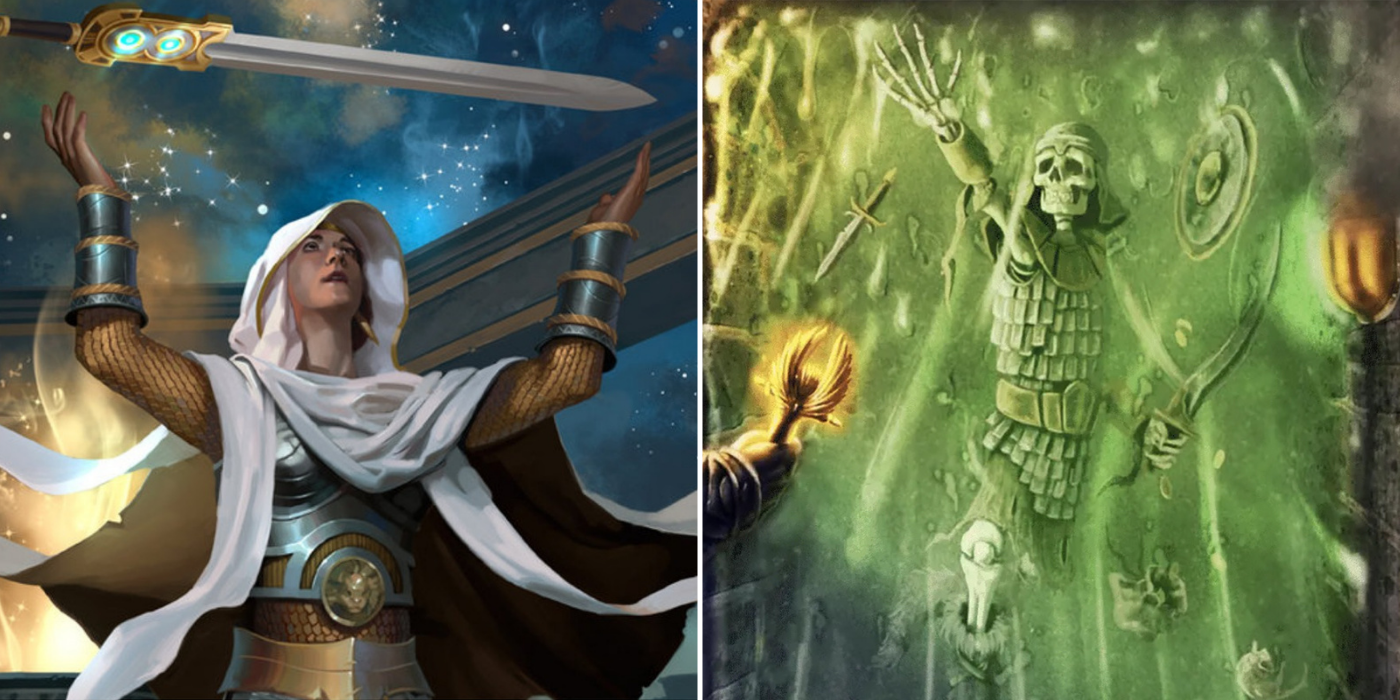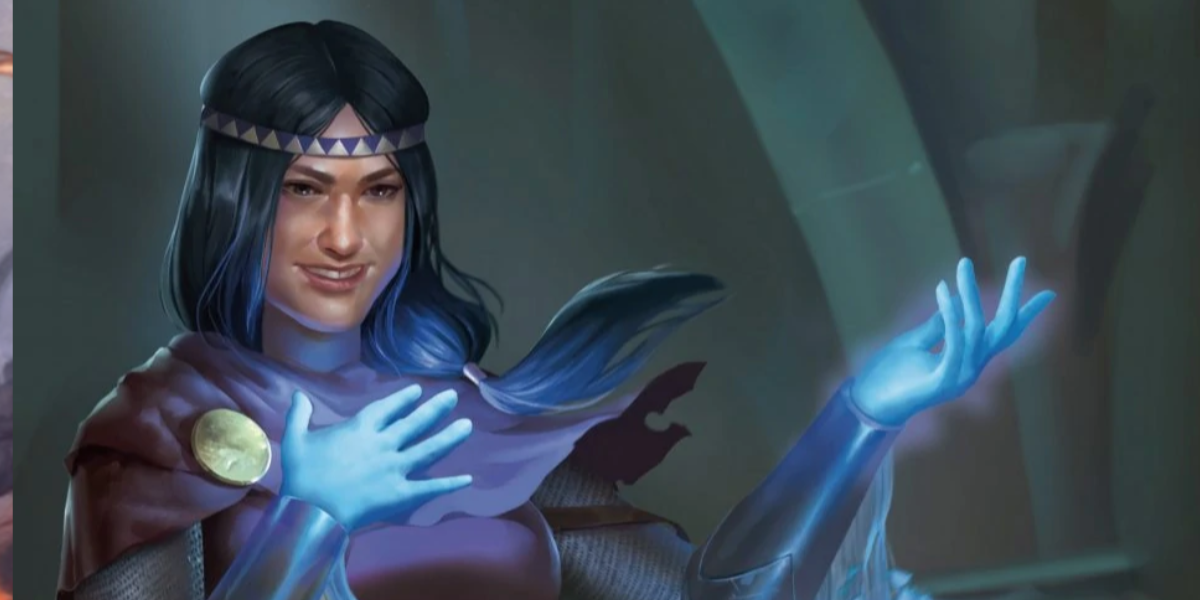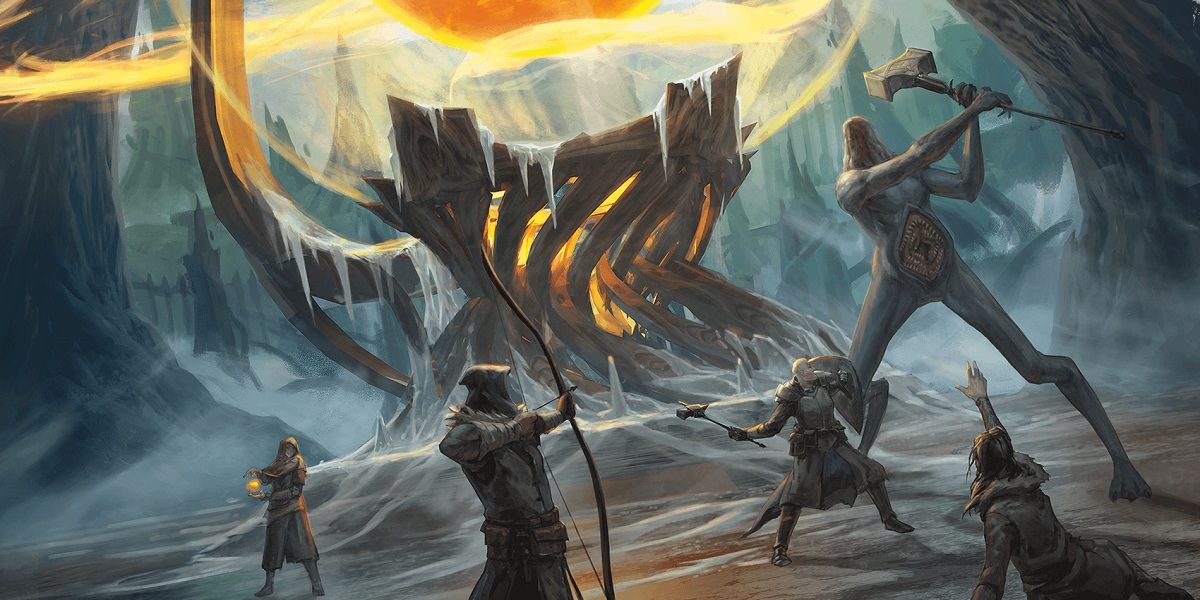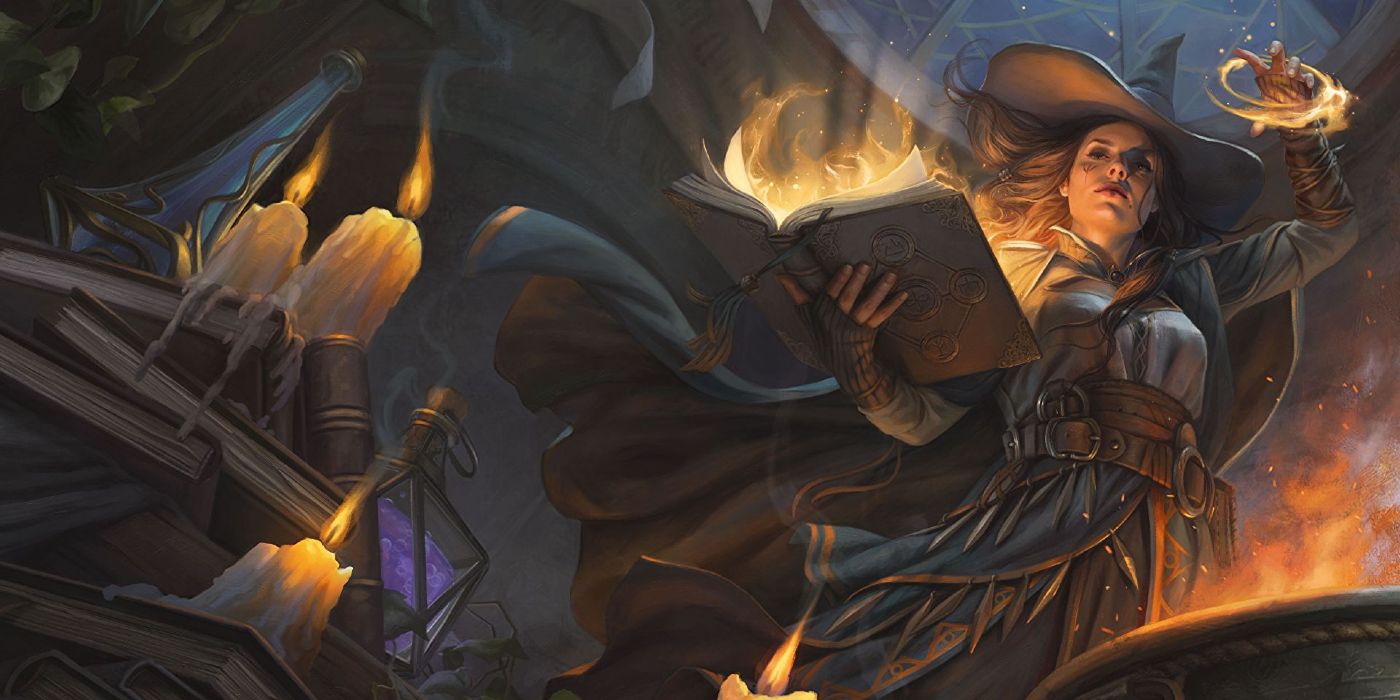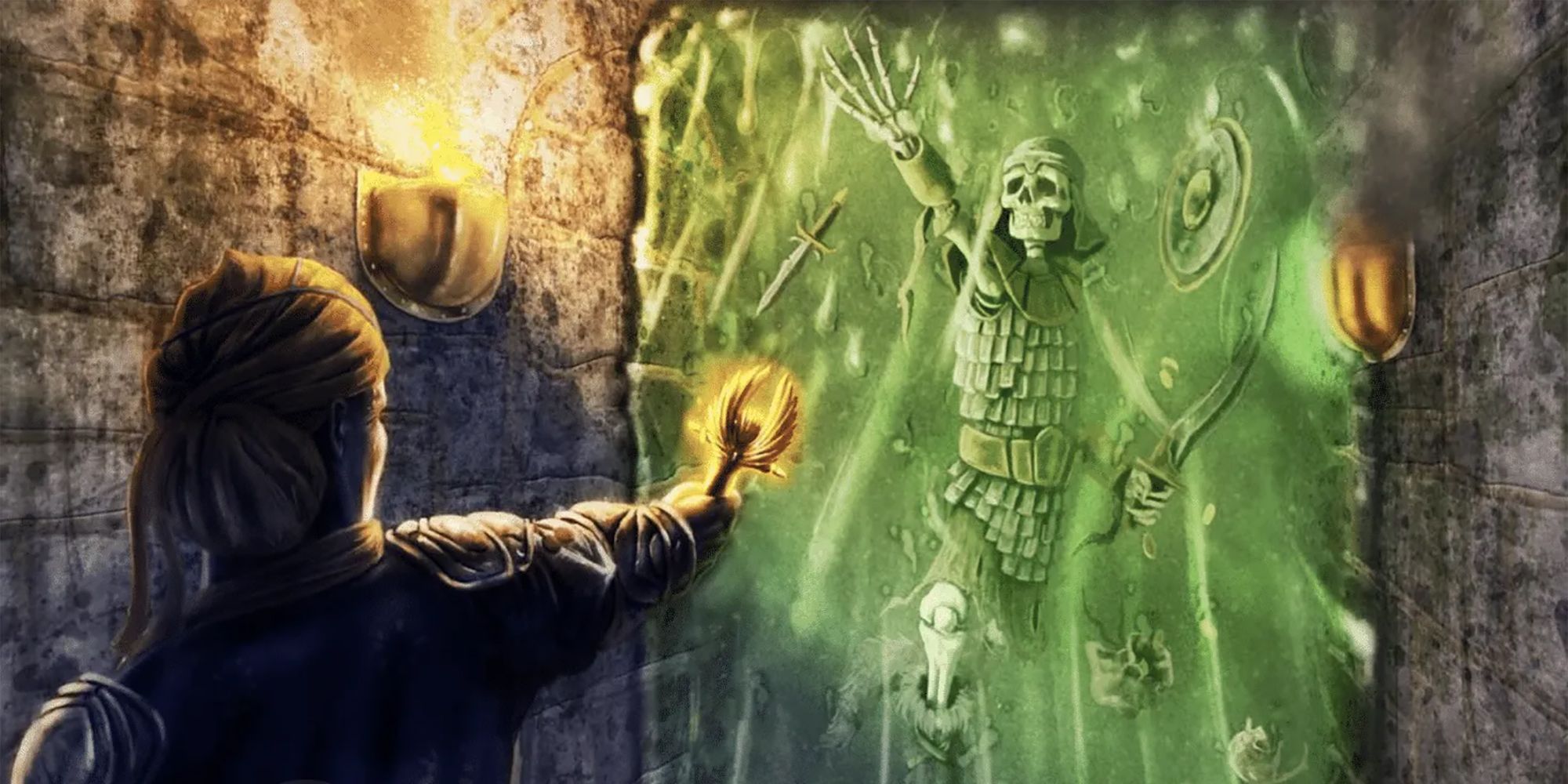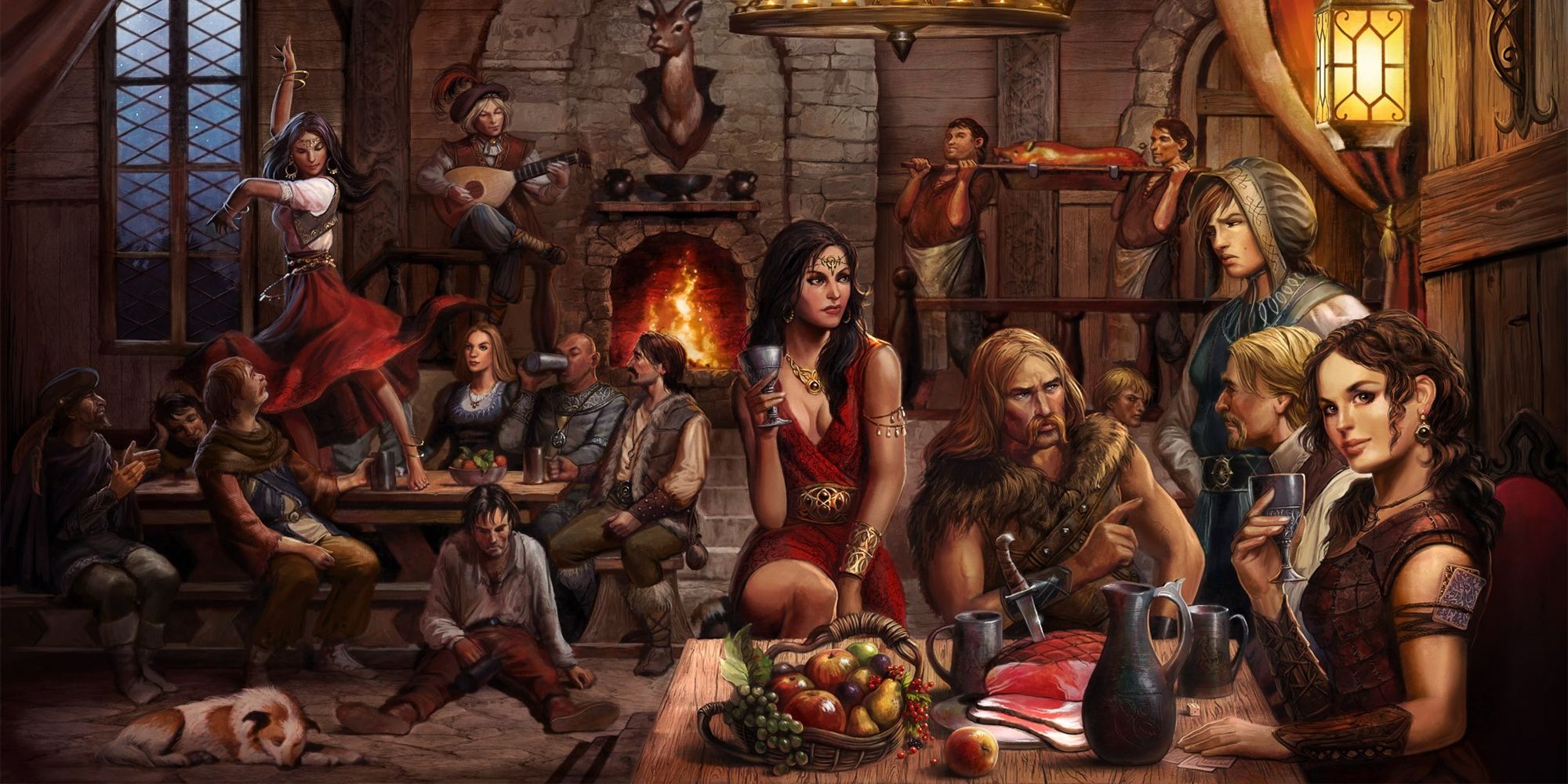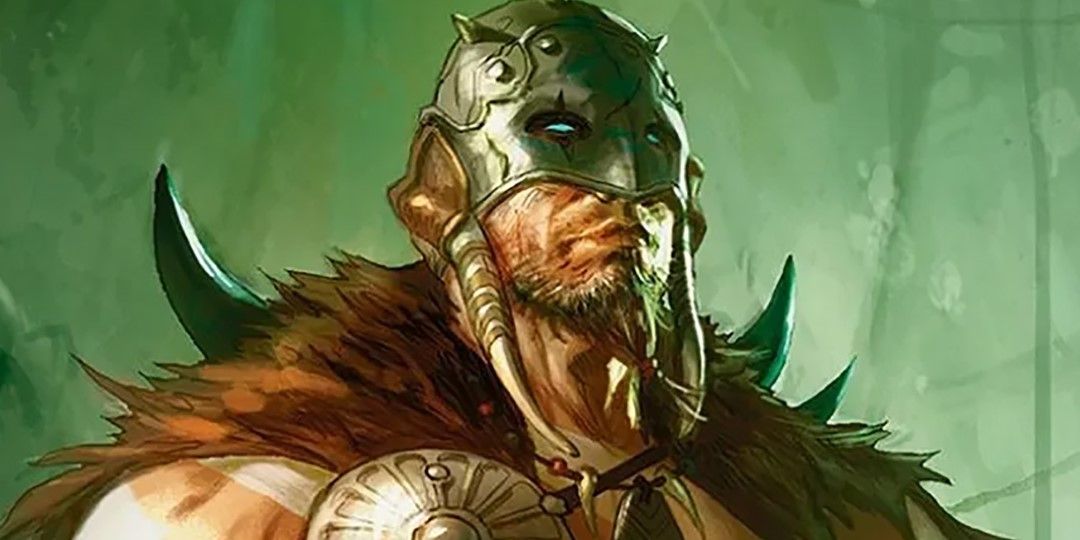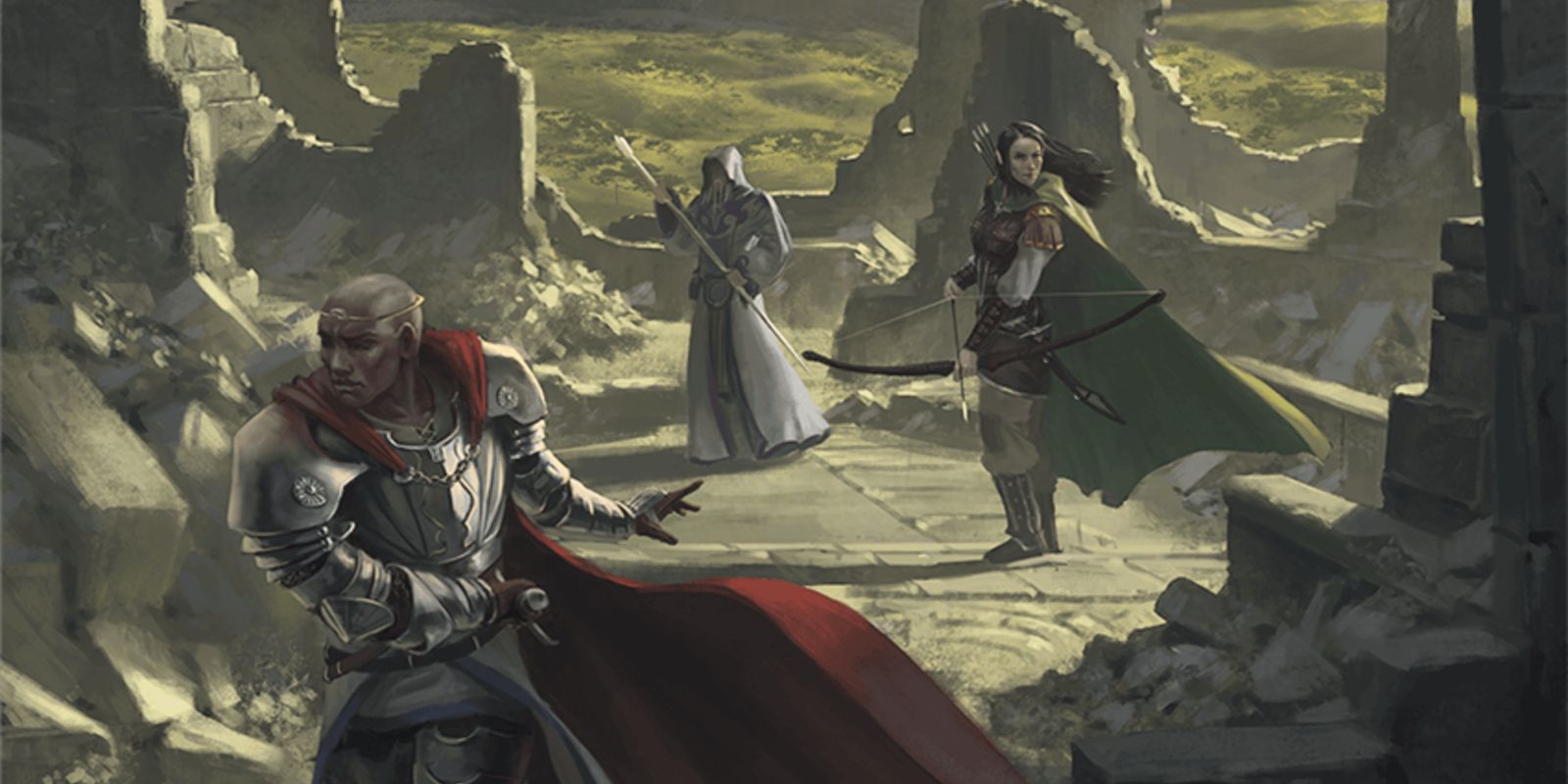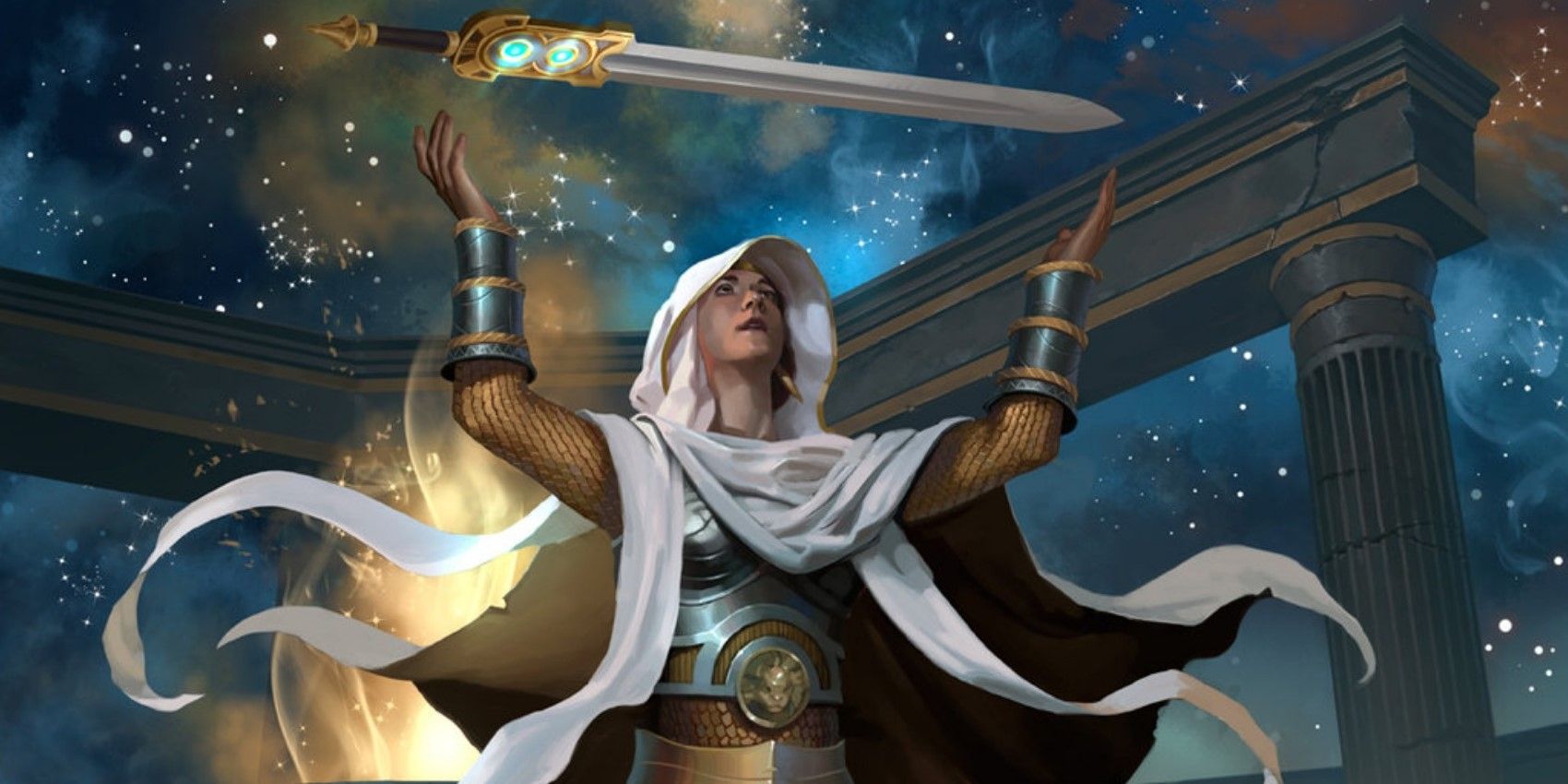Clerics in D&D may seem like a full support class at first, but they're capable of more than just restoration magic. It's hard to go wrong when picking out spells for a cleric, but it depends on how versatile that cleric wants to be.
Some coordination when choosing spells may be required, but it isn't difficult to swap out spells in between long rests. Unlike sorcerers and bards, clerics know their entire spell list and the spells they have prepared are limited only by their level and their Wisdom modifier. Despite this, there are still spells that prove useful in almost any situation — and spells that have no real use at all.
10 Must Pick: Sanctuary Offers Great Protection For Teammates
The ability to cast protective magic is a staple for clerics, and Sanctuary does this quickly and easily. As a bonus action, the caster makes a target of their choice unhittable unless an attacker passes a Wisdom saving throw.
This won't protect against area of effect damage like a stray fireball or bomb, but it can save frailer party members by redirecting the attack to someone else. Following up the spell with a cantrip like Toll The Dead can be especially useful against creatures with low Wisdom, as it requires the same saving throw. With enough spell slots, Sanctuary can be used on everyone in the party on each turn.
9 Avoid: Detect Evil And Good Isn't Good Early On
Under the right circumstances, especially later on in a campaign, this spell can be very useful. It detects a number of different types of creatures 30 feet in front of the caster, as well as determining if an area or object has been desecrated or consecrated, which can be useful with more spell slots to spare. This works especially well with invisible enemies if someone in the party doesn't have Faerie Fire.
But most enemies at the start of a campaign won't be detectable. Aberrations, celestial, elemental, fey, fiend, and undead creatures are among the few players can find at a low challenge rating, but it's more useful to save a spell slot for when the monsters inevitably attack.
8 Must Pick: Bless Can Affect Up To Three People
As a concentration spell, it's important for clerics casting Bless to minimize the risk of taking damage. Bless is a support spell that can affect up to three creatures at the same time for a minute. In combat, each turn takes up to 6 seconds, so this spell is effectively good for 10 turns.
The spell adds a d4 to the affected creature's attack and saving throw rolls. If the party has any characters who use two-weapon fighting, this d4 is added to each attack roll, making it much more likely for the party to take down their adversaries.
7 Avoid: Detect Poison And Disease Don't Last Long Enough
Detection magic is usually useful when the party can expect what's coming while not being exactly sure of where it might be. This spell does just what its name would suggest, detecting any toxic creatures, diseases, or poisons themselves 30 feet from the caster.
In forests or swamps, Detect Poison and Disease can see some use in avoiding bad food or areas filled with spores, but in most cases, the spell won't detect anything at all. The odd times a giant spider is in a dungeon or a bandit has a poison-dipped scimitar will have players boasting about saving the party, but as the spell uses an action in combat, it's easier to take out the threat with an attack. It can feel pointless casting the spell, wasting a slot, and only finding that there are no threats in the area.
6 Must Pick: Inflict Wounds Is Potentially Strongest 1st Level Spell Of Any Class
On a hit, this melee spell deals 3d10 necrotic damage to a creature within range. This is useful when fighting prone enemies or in other situations where a party member has advantage. Inflict Wounds is an extremely powerful spell at level 1; only a few other spells measure up.
Magic Missile's strength lies in its ability to never miss but at 3d4+3, the maximum amount of damage is only 15, whereas Inflict Wounds can do up to 30. The only downside to the spell is its simplicity, as there's another spell in the cleric's spell list that has more versatility.
5 Avoid: Purify Food And Drink Will Never Be Used
Purify Food and Drink will make any food or drink in a 5-foot radius free of poison and disease, but there is little need for such a spell. Keeping track of resources like food varies from DM to DM, and when they are tracked, usually everything is consumed quickly when needed. There's rarely time to take a sip from a poisoned chalice.
If both this spell and Detect Poison and Disease were cantrips, players would rarely get caught off guard by poisoned food or drink. The issue with these spells is how little reward there is for expending a spell slot when a Medicine or Investigation check would suffice just as well.
4 Must Pick: Shield Of Faith Is Perfect For Back-To-Back Encounters
Like Sanctuary, Shield of Faith is a bonus action support spell that has its time and place to use. Sanctuary may be better for short encounters, but Shield of Faith lasts 10 minutes, which could be enough for the tail end of one encounter and the start of the next. When used, the spell increases the AC of a creature of the caster's choice. A cleric using this spell can go one step further by tossing a shield to a party member to use as well.
With the spare action at their disposal, anything can be done from grappling an opponent to using Word of Radiance or Toll the Dead. If the party encounters something else within the next 10 minutes after casting the spell, the AC bonus stays as long as the cleric maintains concentration.
3 Avoid: Bane Is A Worse Bless
Bane can be used on up to three creatures, who must succeed on a Charisma saving throw or subtract a d4 from their attack and saving throw rolls. While this can help the party stay safe, Bless is much better.
And Bless gets better at higher levels, giving teammates who can multi-attack even more to work with on each attack roll. At level 1, Bane is mainly useful when fighting a large number of creatures, and it has its uses, especially when using other spells. But if a creature passes the Charisma saving throw, the spell is completely useless.
2 Must Pick: Guiding Bolt's Secondary Effect Works On Any Following Attack
While Inflict Wounds has massive damage potential, Guiding Bolt has the ability to be paired with a party member's follow-up attack. On a hit, Guiding Bolt deals 4d6 of radiant damage, for a potential maximum of 24 points of damage.
When this spell makes contact, the very next attack on the target has advantage on their attack roll until the end of the caster's following turn. This can encompass any number of melee or spell attacks, or even the caster's own Inflict Wounds. A Barbarian or Rogue's melee attacks can be even deadlier because of this, combining support and damage in one spell.
1 Avoid: Guiding Hand Is Google Maps For The Price Of A Spell Slot
The Unearthed Arcana spell Guiding Hand creates a tiny, shining hand as a guide that lasts for 8 hours. The caster can request directions to any major landmark on the same plane they are currently in and the hand will lead them there. It moves 5 feet away from the caster and will continue to lead them in the direction of the named location, but the spell fails if the location was never mapped before by anyone.
Maps can be expensive, but nowhere near the price of the potions of healing the party might have to take on the road to their destination. Fewer spell slots means fewer uses of Healing Word, all because the cleric wanted to use their shiny hand.

